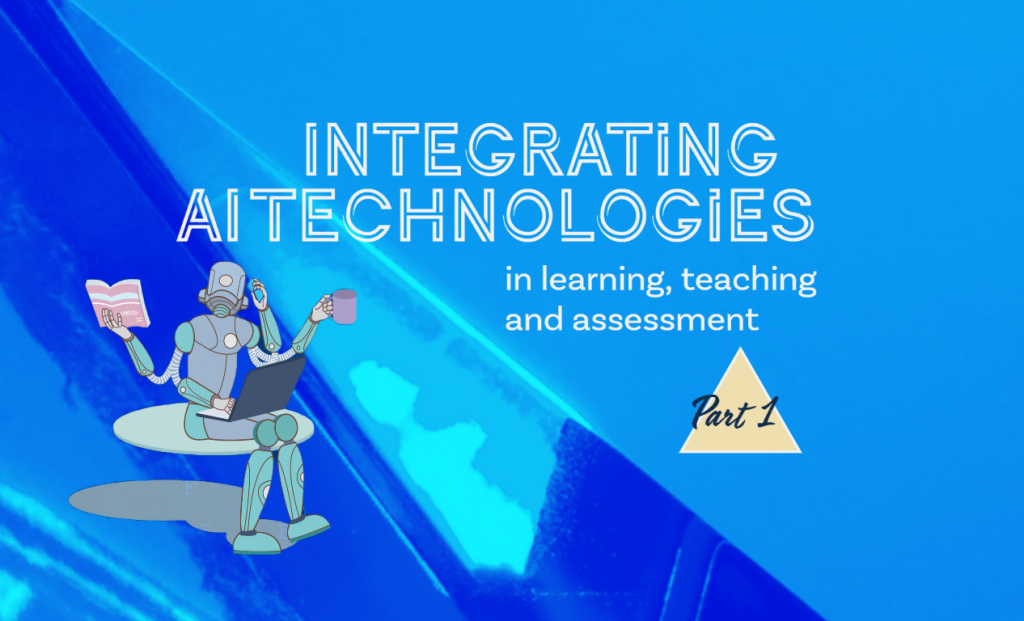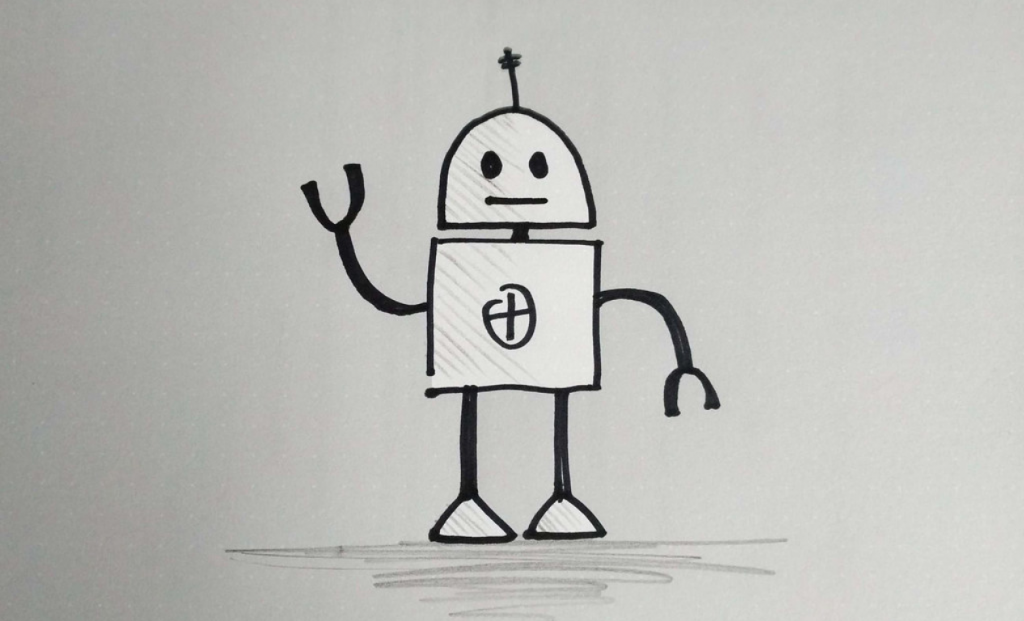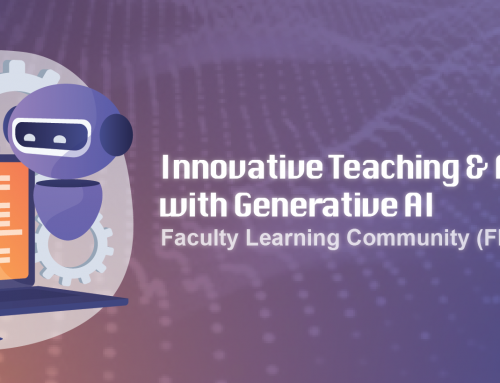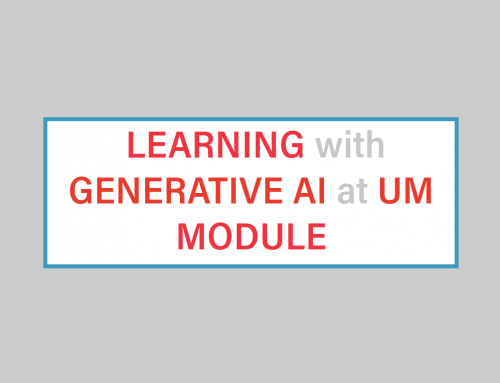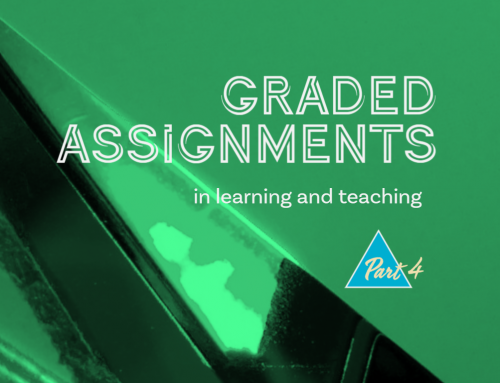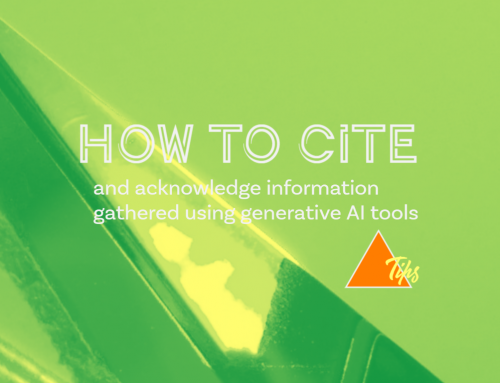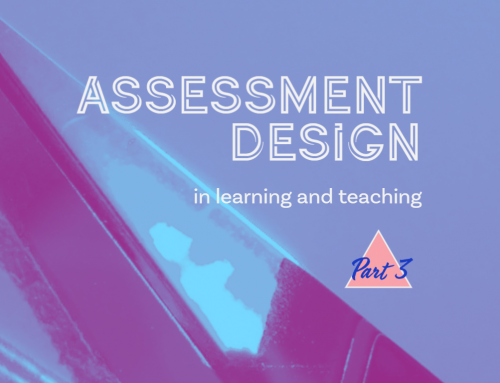Project Description
Written by a human being – Integrating AI technologies in teaching, learning and assessment, Part 1
By Katrine Wong
Updated 21 November 2025.
AI literacy
Artificial intelligence (AI) refers to the ‘capacity of computers or other machines to exhibit or simulate intelligent behaviour’ (OED).
‘Literacy’ traditionally means ‘the ability to read and write’ (OED). Nowadays, one’s literacy is expanded to include a range of literacies, including computer literacy, digital literacy and AI literacy.
‘AI literacy’ describes the competencies necessary in a habitat wherein AI pervades both our private and public spaces and transforms the way that we communicate, live and work with each other, and with machines (Long & Magerko, 2020; Sabouret, 2020). AI literacy is increasingly crucial for effective collaboration between humans and machines, and it can promote human-machine collaboration and augment human intellect and capabilities (Akata et al., 2020).
As teachers in this brave new world, are we ready to embrace AI? Are we ready to develop our AI literacy? Are we ready to incorporate AI in our teaching and learning?
We can start by familiarising ourselves with AI technologies and applications. Alongside ChatGPT (Chat Generative Pre-trained Transformer) – a generative AI tool that allows users to input prompts and receive human-like text, images or even videos that are created from large datasets in response to the text prompts, there are also, to name a few (as of 21 November 2025):
- Adobe Acrobat’s AI Assistant allows for conversational interactions with the content of PDFs, including summarizing and extracting insights. A subscription is required.
- Canva Magic Studio (Canva) is a suite of AI design and image/text tools. It’s the market leader for mainstream visual content creation, built into Canva’s large design platform.
- Character.AI (Character.AI) is a popular AI chat platform for entertainment and role-playing with user-created characters.
- ChatGPT (OpenAI) is a text-generating chatbot for essays, articles, letters, and more. Not available to users in Macau due to developer policy.
- Claude (Anthropic) is an advanced AI model family (e.g., Claude 4.5) known for complex tasks, large context handling, and safety. Not available to users in Macau due to developer policy.
- DeepL is a highly used translation service valued for its quality and accuracy.
- DeepSeek R1/V3 (DeepSeek AI) is an advanced model for coding and research tasks. Growing rapidly among developers with strong coding performance.
- Doubao (ByteDance) is ByteDance’s consumer AI chat app with rapid growth. Focused on the Chinese market.
- ERNIE Bot (Baidu) is the leading AI chatbot in China’s domestic market, integrated into Baidu’s platform.
- Gemini (Google) is a multimodal AI system that works with text, images, audio, video, and code.
- Grammarly AI is an AI-powered writing assistant for grammar, clarity, tone, and style.
- Kimi (Moonshot AI) is a long-context model great for analyzing large documents and research.
- Microsoft Copilot (Microsoft/OpenAI) offers AI productivity and coding tools that understand user actions and generate relevant responses.
- MidJourney V6 (MidJourney) is the industry standard for high-quality artistic image generation. Requires paid subscription (no free trial).
- Perplexity AI Pro (Perplexity) is a search and research assistant known for answers with detailed source citations.
- Qwen (Alibaba) is Alibaba’s multilingual model family (open-source and proprietary). Widely used by enterprises and developers globally. Accessible via Alibaba Cloud’s Model Studio.
For a while now, I’ve been learning how various tools work, slowly (and we don’t know what’s in store tomorrow or next week or next semester!). As I’m learning more about these tools, I’m starting to view them critically and see what their context and embedded principles are. One thing that I’m sure about is that these tools are, to me, powerful search engines. I haven’t used any text generated by such tools in any of my writing, and I don’t have any plans to do so in the (near) future. ChatGPT, for example, is known to hallucinate and concoct false information. Having said that, as of 29 March 2023, it can make things up ‘fluently in more than 50 languages’ (“ChatGPT,” 2023).
Of course, it’s important to know how our students use and study with such tools. In my next blog post, I will talk about what teachers can do to help students learn responsibly with generative AI tools.
References:
Akata, Z., Balliet, D., de Rijke, M., Dignum, F., Dignum, V., Eiben, G., Fokkens, A., Grossi, D., Hindriks, K., Hoos, H., Hung, H., Jonker, C., Monz, C., Neerincx, M., Oliehoek, F., Prakken, H., Schlobach, S., van der Gaag, L., van Harmelen, F., … Welling, M. (2020). A Research Agenda for Hybrid Intelligence: Augmenting Human Intellect With Collaborative, Adaptive, Responsible, and Explainable Artificial Intelligence. Computer, 53(8), 18–28. https://doi.org/10.1109/MC.2020.2996587
‘artificial intelligence, n.’ OED Online. www.oed.com/view/Entry/271625. Accessed 29 March 2023.
ChatGPT is a marvel of multilingualism. (2023, March 29). The Economist. https://www.economist.com/culture/2023/03/29/chatgpt-is-a-marvel-of-multilingualism
‘literacy, n.’ OED Online. www.oed.com/view/Entry/109054. Accessed 29 March 2023.
Long, D. & Magerko, B. (2020). What is AI Literacy? Competencies and Design Considerations. Proceedings of the 2020 CHI Conference on Human Factors in Computing Systems (pp. 1–16). https://doi.org/10.1145/3313831.3376727
Sabouret, N. (2020). Understanding artificial intelligence. CRC Press LLC. https://doi.org/10.1201/9781003080626
